Brewton, AL
The ribbon of U.S. 31 drops out of the pine-clad hills into a pocket of flat ground watered by Murder Creek and Burnt Corn Creek, and there you’ll find Brewton, Alabama. Population just north of 5,000. Seen from a distance, the town looks ordinary enough: courthouse dome, water tower stamped with the town logo, and a freight spur nudging the back side of Main.
This is a place where strangers stop you in the street and talk to you like an old friend they haven’t seen in a decade. They speak with an unmistakable southern drawl here, the kind that says “please, thank you” and “can I help you?” all at the same time.
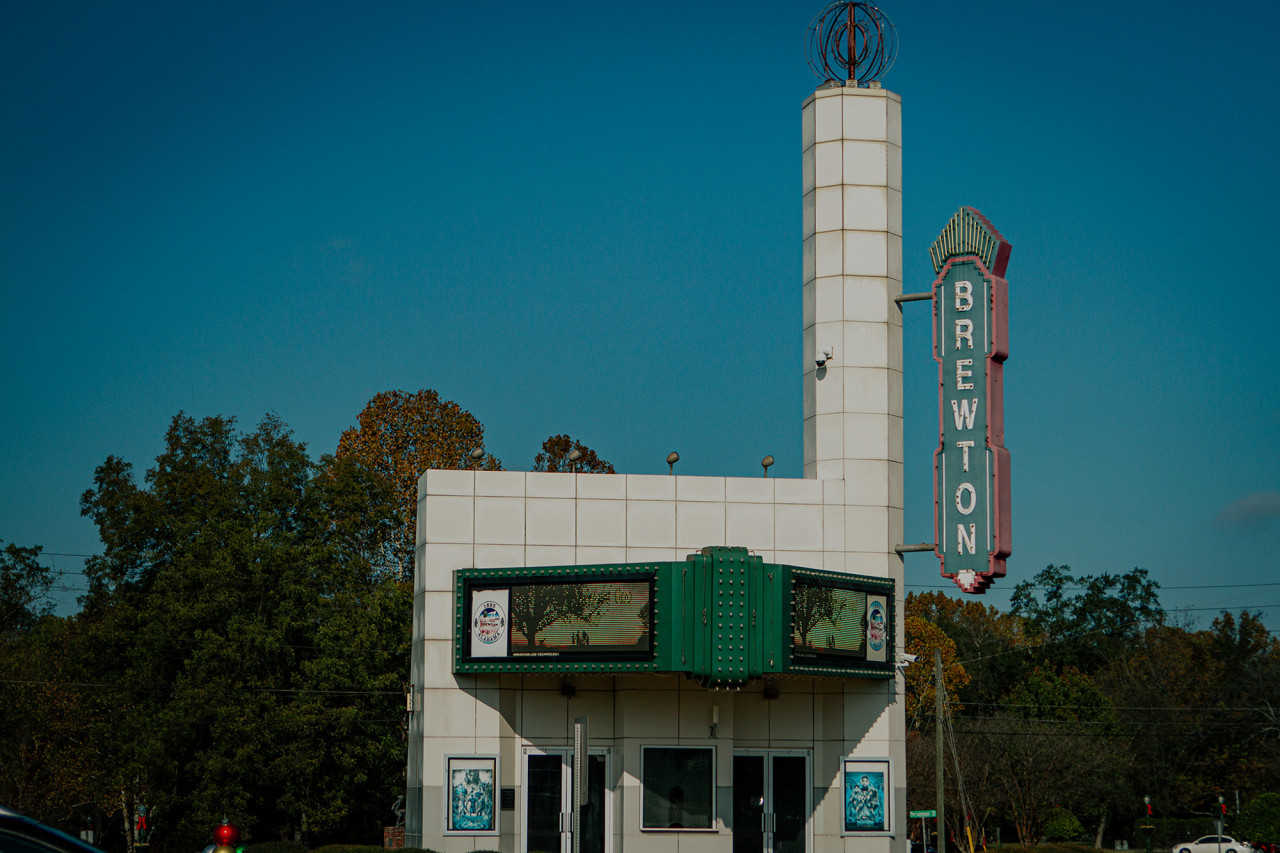
Here the earth's riches have been kind to its people, and in return, the people have been kind to each other. Brewton's story is one of wealth turned outward to smooth the rough edges of a small community.
The dense, ancient forests surrounding the town spawned lumber town and birthed the first generation of timber barons. Men like John McCowin, the Drexells and D.W. McMillan saw more than just trees; they saw a future carved from the wood they harvested.
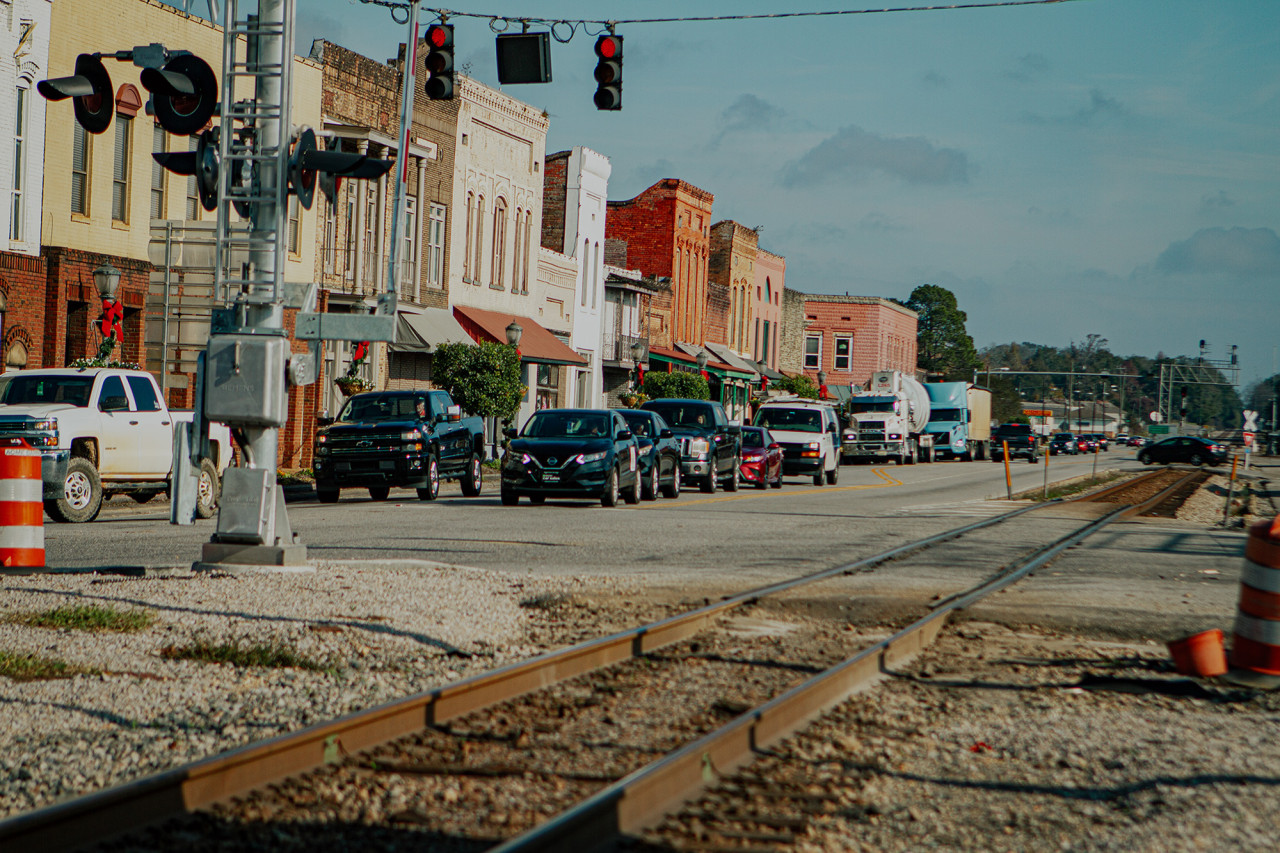
The Seed of Timber and Fire
Brewton’s first fortune was measured in board feet. When the nineteenth century was shrugging off its final decade, the trees here stood thick and tall and straight—virgin pines older than the Republic. Loggers felled them, teamsters dragged them, steam whistles bellowed, saw blades sang. A rawboned settlement called Junction sprang up where the Montgomery & Florida Railway crossed the Mobile & Montgomery. By 1885 it had a post office, a brace of saloons, and a name borrowed from a railroad inspector—Brewton—bestowed with the casual arrogance of men who thought rails and timber would last forever.
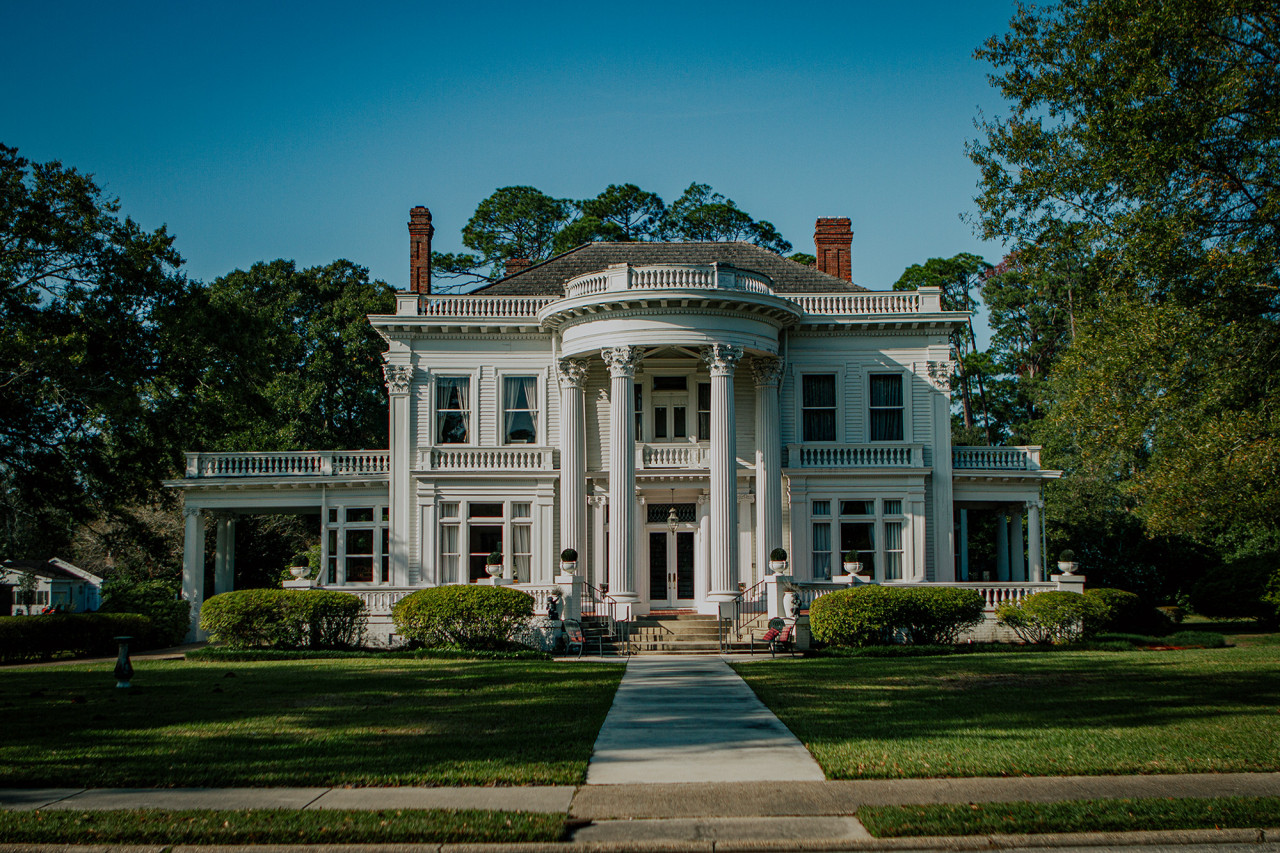
They did not count on flame. In 1902—some say from a locomotive spark, others from a cookstove carelessly banked—fire ate the business district like a starving animal. Frame stores, depot sheds, the genteel hotel with its lace curtains: gone in a night. Ash drifted over the creek and settled on kitchen tables miles away. Folks mourned, then squared their shoulders and built again—this time in brick, stout enough to stare down combustion. The new district rose along Belleville Avenue, Romanesque arches and cornices of corbelled red clay, a statement that calamity might visit but would not lodge.
The lesson took. Long after the last old-growth pine toppled and the Depression thinned bank accounts, Brewton kept proving it knew how to stand back up. Hard winters, mill layoffs, hurricanes pushing salt water sixty miles inland—each blow left dents, never fractures. Resilience is the town’s marrow, seasoned by flame.
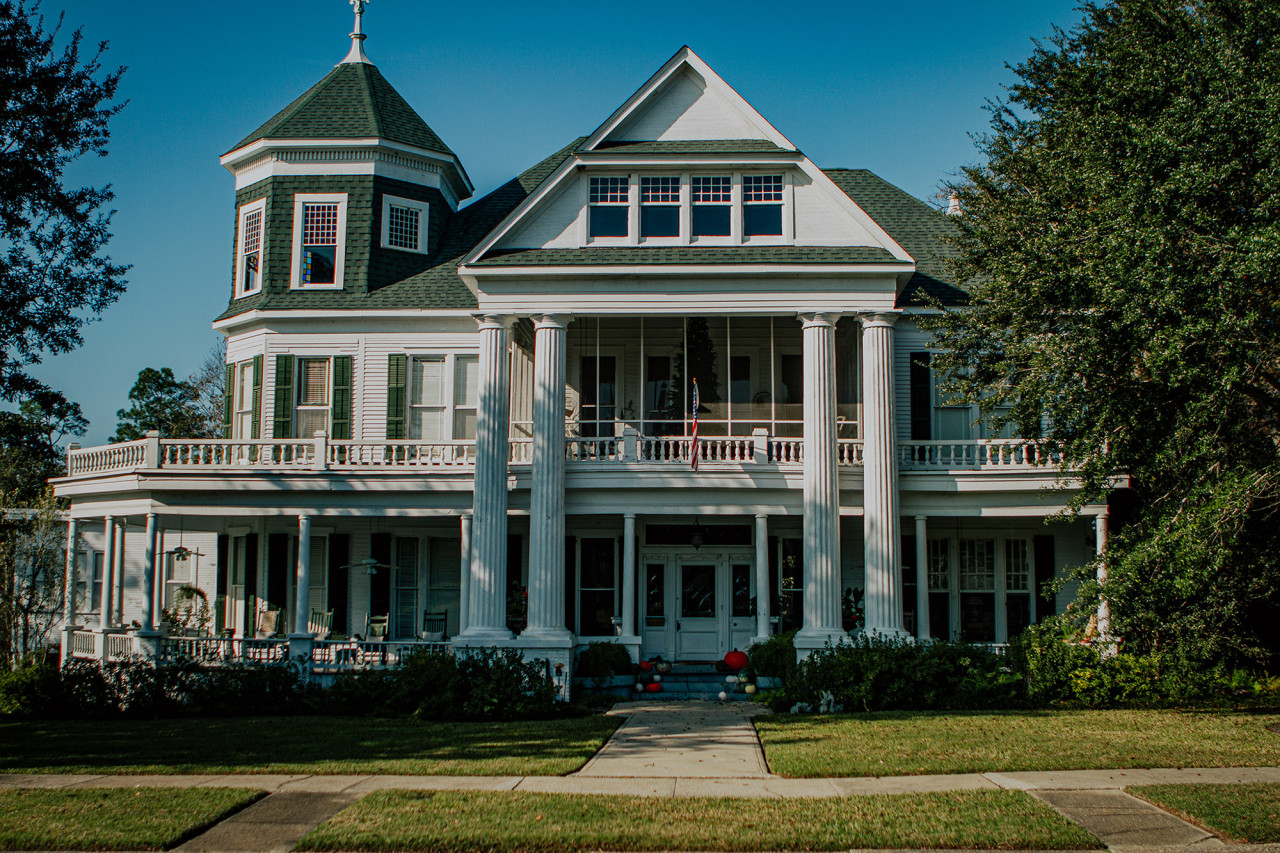
Timber Barons with Open Pockets
Every Southern hamlet can name its founding patriarchs in one breath; Brewton needs two. There was the mill man who laid down rail deeper into the swamp than common sense permitted; the immigrant banker who parlayed lumber profits into mercantile empires; the quiet physician who stitched up sawyers for free and then endowed a hospital that still bears his initials. Their mansions—white columns, heart-pine floors thick as butcher blocks—rose on the bluff above Mason Mill Creek. Yet the grandeur sat loosely on their shoulders. Wealth, they reckoned, was like longleaf sap: under pressure it leaks. Better to guide the flow.
So they tacked their surnames not to yachts but to gifts: a Carnegie-worthy library whose stained-glass dome blazes cobalt at noon; a YMCA with an Olympic lane pool and enough free programs to keep every kid off the street; a five-million-dollar softball complex lit like a minor-league stadium; scholarships that sent sharecroppers’ daughters to Tuskegee and Auburn long before civil-rights laws required fairness. By mid-century Brewton claimed—without boasting, merely stating—that on a per-capita basis it was the richest town in the republic. Rich not in oil or steel, but in the habit of turning profit outward like seed.
They were fallible men, of course—timber cut too aggressively, company scrip that tied hands—but the civic muscle they exercised left enduring sinew. Streets still carry their names, but it’s the unseen arterial work—clinics, parks, a community college—that pumps life into present-day Brewton.
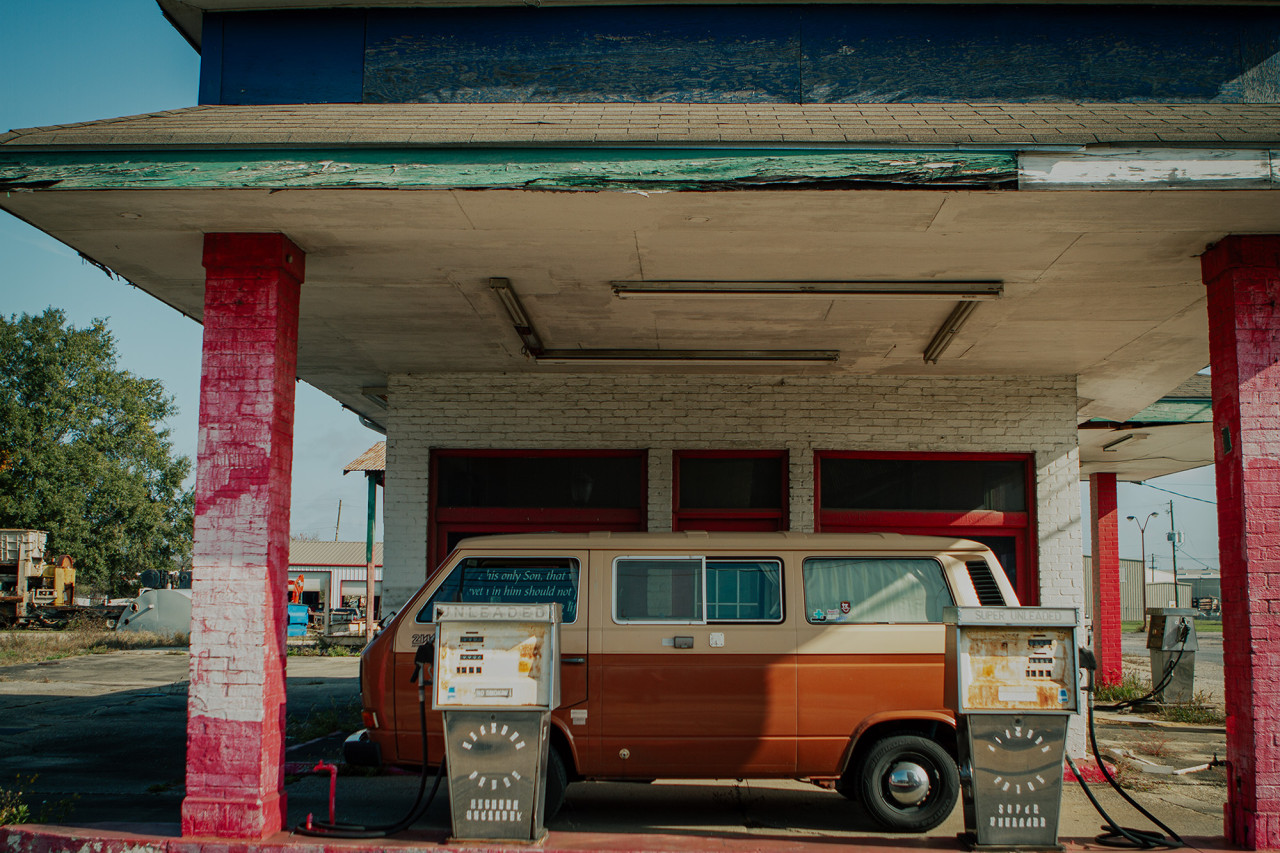
Blueberry Festivals and Library Light
Brewton’s civic calendar pivots on three poles: the summer blueberry jubilee, the October Miller Bowl football rivalry, and the Christmas parade, where the marching band’s tubas glow with battery-powered lights. The festival began in ’79 when a horticulturalist proved highbush blueberries could thrive in sandy soil if coaxed with pine-needle mulch. Now farmers truck in berries by the crate; kids fling pies at a dunk tank target shaped like a giant berry; artisans hawk jam laced with chipotle or mint. Profits bankroll scholarships for any senior whose parents never attended college—an echo of the barons’ largesse, updated for a knowledge economy.
The library—three stories of blond brick and glass—stands opposite the depot. At night, when freight trains rattle through and the town otherwise sleeps, the reading room remains lit. Locals say a wealthy widow endowed perpetual illumination so “some soul on the midnight shift can know a book waits for him.” Whether literal or apocryphal, the glow turns the building into a lantern. You drive by at 2 a.m. and see row upon row of spines catching the electric hush, as if language itself were on vigil.
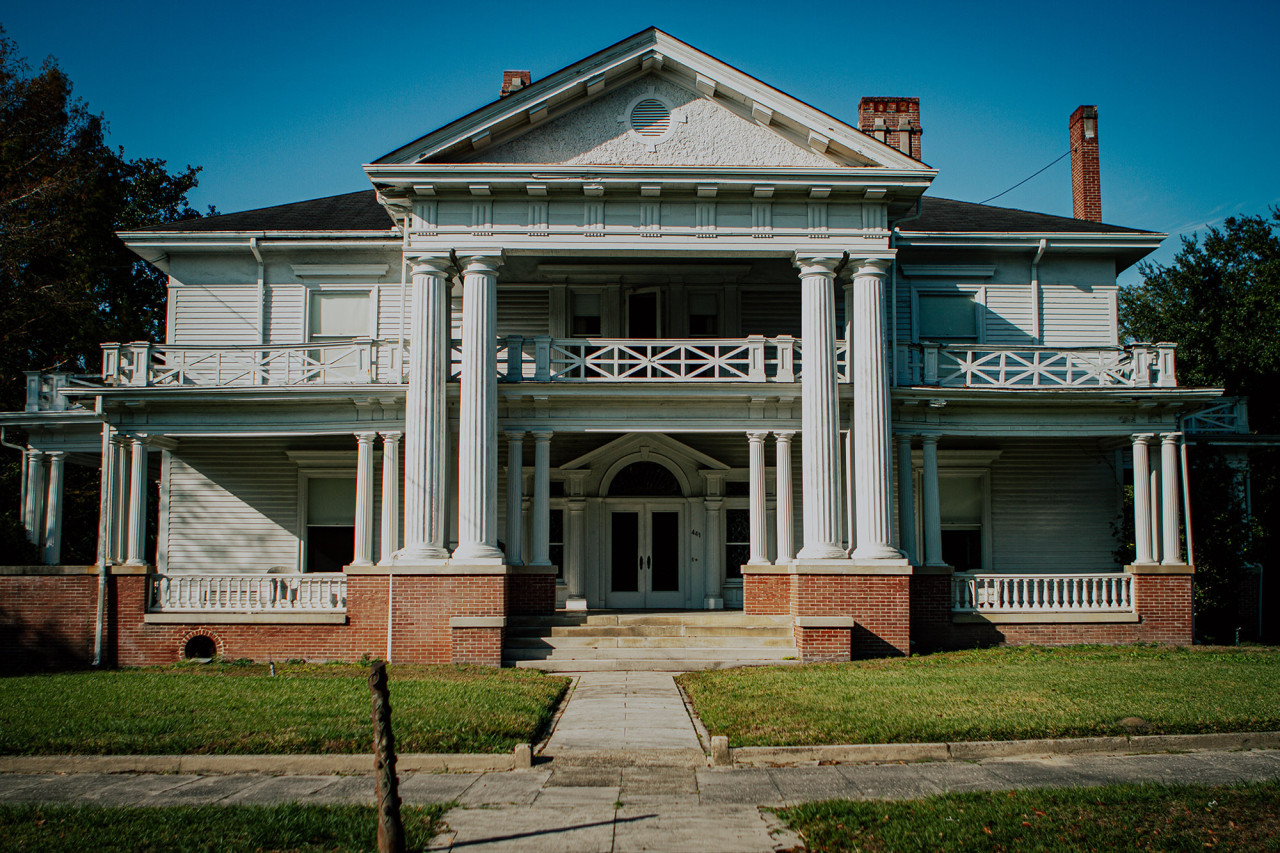
Education and the Durable Future
Before integration, Brewton’s Black families scraped together tuition for a school run by a stern professor who believed Latin declensions bred discipline. Timber money quietly subsidized the endeavor; excellence, the barons argued, should not be segregated by color or class. It gained a reputation for being the best Black private school in the country. Graduates fanned across the South to become doctors, band directors, civil-rights lawyers. Today, the consolidated public high school carries a B+ rating, above the state average, though funding remains perilous.
The Quiet Accounting
On my last evening in town I walked the rails. The air smelled of creosote and November frost. In the darkness a thrush sang—three notes, pause, two notes.
I thought of the barons’ marble tombs up on Union Cemetery Hill. All of it part of some ledger that cannot be balanced by actuaries. The column headings read GIVEN and RECEIVED, and the values shift like sunlight through pine boughs—immeasurable, yet undeniably real.
Brewton will never build skyscrapers; the richest vein here runs in unseen conduits of neighborliness. When timber runs short, when hurricanes scar the plywood mills, when young folks drift toward Birmingham tech jobs, the town will lean again on the habit that saved it after fire: Share what you’ve got, rebuild what burned, keep the light on.
Like the pines, Brewton bends in storm and stands back tall, resin shining under new bark. Tomorrow Josie and I will hunt for a place that serves a community Thanksgiving. The day after I have an appointment to meet a man whose name falls from a thousand lips whenever they’re asked to name the most selfless, gracious person in town.
Then Josie and I will aim for home. All the “giveaway” funds will have been spent. I figure if I eat instant oatmeal in the mornings and Ramen at night, I’ll have just enough money left in the Hope & Generosity Tour’s coffers to cover the gas money back to South Carolina.
Souvenirs, tokens, receipts, memories—call them what you will. They whisper the same message the trees are always sending into the wind: hope and generosity live here. And that, perhaps, is the only arithmetic that merits the name.
When you subscribe to the blog, we will send you an e-mail when there are new updates on the site so you wouldn't miss them.

